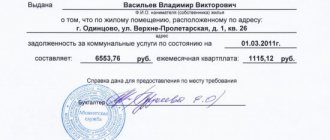Find out on our website whether it is possible to exchange a mortgaged apartment, an old apartment for a new building, a room for a house in the village or a plot of land, and how to do the intercity procedure.
Is it possible?
Privatized housing is real estate that belongs by right of ownership to one person or persons who can dispose of it at their own discretion.
It is not at all strange that sometimes there is a need to change housing.
Moving to another area or even city, expanding or downsizing your home - all these are objective reasons for carrying out this procedure.
Is it allowed to exchange privatized real estate for privatized one? Such real estate is subject to exchange. There are no prohibitions on this action. There can be only one case when privatization is not permitted - one of the owners did not give his consent to such an action. Otherwise, even the legislator does not prohibit such an action .
Who has the right to this? The legislator assumes that citizens who own such housing may want to exchange it. This is completely logical and is not prohibited by anything.
How to exchange privatized living space for the same? Unfortunately, a normative act has not yet appeared that would fully and completely answer the questions that arise during the procedure.
However, the most important regulations, called codes, mention some rules.
Thus, the Civil Code tells us about the existence of an exchange agreement, in accordance with which it is allowed to carry out such a procedure. Accordingly, there is no need to make purchases and sales.
Two parties who wish to exchange living spaces write down their wishes in the documents and, if available, a clause on additional payment. Such a document greatly simplifies the procedure. You can learn more about it in Article 567 of the Civil Code of the Russian Federation.
In addition to the Civil Code, these issues are also covered by the Housing Code. True, its article 72 talks about the peculiarities of the procedure with real estate that is in the use of citizens under a social tenancy agreement .
However, if you want to exchange privatized living space for real estate that is included in the lease agreement, you can also read the lines of this article.
So:
- Exchange of privatized residential premises for privatized ones. The Housing Code reminds us that such an apartment can only be exchanged for an equivalent one , that is, also privatized. Moreover, if all owners and residents agree to such an action, problems with registration should not arise.
- To the municipal one. An exchange for a privatized municipal apartment is practically impossible , and not because it is difficult to document. It is almost impossible to find a person who would agree to give up his own housing for public housing, which can only be used. Therefore, this procedure is significantly complicated.
- Without the consent of the residents . How to exchange such housing if one is against it? If the living space is your property, when you decide to change it, you do not have to ask the consent of the residents, and even those registered. This is your property and you can dispose of it at your own discretion.
Only other owners, as well as the spouse of the owner of privatized housing, must give their consent.
Reasons for the exchange
There are a number of reasons for exchanging privatized housing. Someone wants to improve their living conditions , while others, on the contrary, by reducing the living space, can save on utility bills and also receive an additional payment from the transaction.
Someone is on the verge of divorce and does not want to share living space with their spouse, therefore, the issue of exchanging one large apartment for two smaller ones is being resolved. One way or another, there are many reasons for the exchange and the most important of them is the desire of the parties and owners to carry out this action.
You can find out how to exchange a room in a dorm or communal apartment, as well as a two-room or three-room apartment on our website.
Free legal advice
Hello. I want to leave my relatives. There is a privatized 3 apartment for me and my 2 children and my mother, with my brother. The brother leads an associative lifestyle. He drinks, wakes up the children, makes trouble, destroys everything in the middle of the night, calls names, threatens, etc. He doesn’t agree to leave in an amicable way, what should he do?
When a friend or girlfriend comes to us with a request to lend money, how can we refuse, because, who knows, maybe the day is not far off when we will have to turn to our friends with exactly the same request! And it’s wonderful when debts are repaid on time.
We recommend reading: Find out the cadastral value of an apartment online for free
Where to look for options?
How to properly exchange such living space? Where can I find suitable options? There are several ways to search for options.
If you are already fully committed to this procedure, we suggest that you familiarize yourself with the main methods of searching for a potential second party to the transaction.
If you want to save money and not pay for real estate services, you can try your luck in searching for options . Give appropriate advertisements about the search for an exchange option, look for relevant offers.
When you find offers for sale, offer the owners an exchange. In the absence of a ready-made database, much more time will be spent searching for the other side of the transaction, but money will be saved .
Contacting a real estate office is a guarantee of saving time and selecting several options .
Realtors need to pay a fee for their services , as a rule, this is a fixed fee or a percentage of the transaction. But considering that options are selected in a matter of days, this is not such a big expense.
Is it possible to exchange an apartment without the consent of one of the owners?
Firstly, just in case, I note that your brother must not only be registered in the apartment (registered), but must be the owner (i.e. there is a certificate of ownership where he is listed as the owner with a certain share). It’s just that many people confuse the persons registered in the apartment (registered) and the owners of the apartment. The first have no rights, except one - to live in an apartment. Therefore, if you suddenly confuse these two concepts, then know that if your brother is only registered, but is not the owner, then no consent from him for the exchange is required.
Hello, we live in apartment 4 Mom Dad I am a daughter and a brother. My brother is constantly being a hooligan and interferes with our life by drinking. We want to exchange a 2-room apartment for a one-room apartment and a communal apartment, but my brother may not agree, he is now sentenced to 240 hours of correctional labor for harming my Is an exchange possible for a guy with an ax under such circumstances?
We recommend reading: Where to obtain Russian citizenship
Methods
How to change a privatized apartment to a privatized one? How to do a related exchange? Is it possible to exchange privatized living space for privatized one through purchase and sale?
There are several ways to do this. As a rule, the use of both is due to the presence of a number of circumstances:
- Purchase and sale . Sometimes citizens do not want to sign an exchange agreement. Some consider it unreliable, others expect an additional payment, but this clause is best described by the purchase and sale agreement. This is the reason for the use of this type of transaction.
- Mena . Exchange of property in ownership - this type of transaction is used when it comes to apartments of equal value. This document sets out the basic terms of the transaction. The agreement is signed by the parties and formalized in the relevant government agencies.
Both parties draw up two purchase and sale agreements regarding each other and, if there are no claims, sign them. This is how this procedure occurs.
Where to start designing?
First, you need to notify all homeowners of your intention.
If the owners agree, it is necessary to obtain written consent .
Remove the encumbrance from the living space , that is, sign out the extraneous residents. Prepare your papers. After this, you can contact a real estate agency or independently begin searching for a buyer or person for the exchange.
Once you have found a suitable option and the owner also agrees to your property, you need to choose a method for completing the transaction and fill out the document. It is best to carry out this action in the presence of a notary with appropriate certification.
In addition, your transaction number must be entered by the notary into the appropriate register. This will allow you to protect yourself from a legal point of view from unauthorized actions on the part of your opponent.
Scams by relatives with real estate: 6 tips on how not to lose your home
A gift deed is another matter. It protects the person to whom the housing is donated from attacks by other claimants to the inheritance. However, the gift agreement does not protect the donor himself. By signing it, you are legally deprived of your rights to the property. This is exactly the case in which unscrupulous relatives can easily take away your apartment, without the opportunity to challenge their actions in court. Important documents that are in the public domain (including those confirming the ownership of real estate) can be used by criminals, even if they have the status of relatives or friends. However, we ourselves sometimes thoughtlessly entrust them to those who should not.
21 Dec 2021 marketur 219
Share this post
- Related Posts
- Is insurance required when applying for a loan from Sberbank online?
- Law On Labor Veterans in the Tver Region in 2021
- Where to get a registration certificate for an apartment in Moscow
- Can disabled people work part-time?
Required documents
This procedure requires a standard package, which is also used when registering a purchase and sale:
- owner passports;
- their marketing authorizations;
- ownership documents;
- technical specifications and documentation for living space;
- consent of the spouses to the exchange;
- documents from the BTI;
- an extract from the house register about the composition of residents;
- certificate of payment for all utilities and absence of debt;
- an agreement drawn up by the parties and certified by a notary.
All of the papers listed above are submitted to the branch of the Federal State Register Service .
The papers are carefully examined and checked for authenticity.
Rosreestr employees also make appropriate requests in order to check the feasibility of this transaction.
Only if the employees of the Federal State Register Service have no questions for you and your documents, the transaction can be formalized in the proper form, and the two parties will be issued agreements on ownership of the new property.
Inheritance 24
You must contact the district court. To do this, the location of the defendant is usually taken into account. After filing the statement of claim, a hearing date is set. The decision is made within one month, but the court is not a broker, so it does not sell or exchange the apartment.
We recommend reading: Sample Statement of Claim to Court for Exclusion from Apartment Without His Consent
Timing and cost
The standard time frame for processing such a transaction at the Federal State Register Service is seven working days. However, if we are talking about a transaction between two cities or even regions, or it is complicated by certain factors, the time can be extended to one month .
The service of registering property rights does not require payment of a state fee, but requires payment of the appropriate tax according to the details of the state budget . For citizens permanently residing in our country, the amount will be 13 percent, for foreigners – 20 percent.
The tax payment document must be provided along with other documents when submitting to the Federal Registration State Service.
Failure Cases
Registration may be refused if one of the owners does not meet the conditions necessary to carry out the registration procedure . These include:
- non-payment of tax;
- lack of documents;
- an incorrectly drawn up application or paper;
- lack of consent of the spouse or owner;
- lack of response to the sent request due to the irrelevance of the provided papers;
- forgery of documents.










